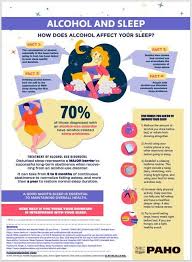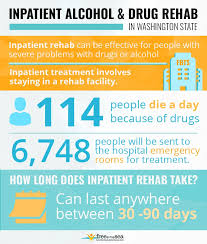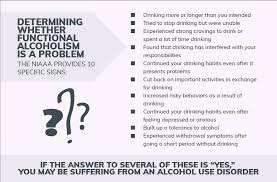Anxiety After Drinking: Understanding the Connection
Many people have experienced feelings of anxiety after drinking alcohol. While alcohol is often consumed for its relaxing effects, it can also have the opposite effect on some individuals, leading to increased anxiety and unease.
There are several reasons why alcohol may trigger or exacerbate anxiety symptoms:
- Chemical Imbalance: Alcohol affects neurotransmitters in the brain, such as serotonin and dopamine, which play a role in mood regulation. Disruption of these chemicals can contribute to feelings of anxiety.
- Dehydration: Alcohol is a diuretic, meaning it increases urine production and can lead to dehydration. Dehydration can cause physical symptoms like dizziness, fatigue, and increased heart rate, which may mimic anxiety symptoms.
- Sleep Disruption: Alcohol can disrupt sleep patterns, leading to poor quality sleep or difficulty falling asleep. Lack of restful sleep can increase feelings of irritability and anxiety.
- Hangover Effects: The physical effects of a hangover, such as headache, nausea, and fatigue, can contribute to overall feelings of discomfort and unease that may manifest as anxiety.
If you find yourself experiencing anxiety after drinking, it’s important to take steps to address the underlying causes. Here are some tips that may help alleviate post-drinking anxiety:
- Hydration: Drink plenty of water before, during, and after consuming alcohol to combat dehydration.
- Moderation: Limit your alcohol intake to reduce the likelihood of experiencing negative effects on your mood and mental well-being.
- Healthy Lifestyle Choices: Maintain a balanced diet, exercise regularly, and prioritize good sleep hygiene to support overall mental health.
- Seek Support: If you frequently experience anxiety after drinking or if your symptoms are severe, consider seeking help from a mental health professional or counselor.
Remember that everyone reacts differently to alcohol, and what causes anxiety in one person may not affect another in the same way. Listen to your body and mind, pay attention to how you feel after drinking alcohol, and make choices that support your well-being.
Understanding and Managing Anxiety After Drinking: Common Questions and Answers
- Does alcohol induced anxiety go away?
- How long does anxiety last after drinking?
- How can I calm my anxiety after drinking?
- How to get rid of hangxiety?
- How long can hangover anxiety last?
Does alcohol induced anxiety go away?
Alcohol-induced anxiety can vary in duration and intensity depending on individual factors such as alcohol tolerance, overall health, and mental resilience. In many cases, the feelings of anxiety triggered by alcohol consumption are temporary and may subside as the body metabolizes the alcohol. However, for some individuals, especially those with underlying anxiety disorders or sensitivities to alcohol, the effects of alcohol-induced anxiety may linger beyond the immediate drinking session. It’s important to monitor how you feel after consuming alcohol and seek support if you find that anxiety persists or becomes a recurring issue. Making mindful choices about alcohol consumption and prioritizing self-care can help manage and potentially reduce the impact of alcohol-induced anxiety over time.
How long does anxiety last after drinking?
Anxiety after drinking can vary in duration from person to person and depends on various factors such as the amount of alcohol consumed, individual tolerance levels, overall health, and mental state. For some individuals, anxiety may subside relatively quickly once the effects of alcohol wear off, typically within a few hours. However, in other cases, feelings of anxiety may persist for an extended period, potentially lasting into the next day or even longer. It’s essential to listen to your body and mind, practice self-care, and seek support if needed to manage post-drinking anxiety effectively.
How can I calm my anxiety after drinking?
After drinking, it is common for individuals to experience heightened anxiety levels. To calm anxiety after drinking, there are several strategies you can try. First, staying hydrated by drinking water can help alleviate some of the physical symptoms associated with alcohol consumption. Deep breathing exercises or mindfulness techniques can also be effective in calming the mind and reducing anxiety levels. Engaging in light physical activity or taking a warm bath may help relax tense muscles and promote a sense of calm. Additionally, avoiding caffeine and getting sufficient rest can support your body in recovering from the effects of alcohol and reduce feelings of anxiety. If anxiety persists or becomes overwhelming, seeking support from a mental health professional is always a recommended course of action.
How to get rid of hangxiety?
Many individuals experience “hangxiety,” a term used to describe the anxiety and unease that can accompany a hangover after drinking alcohol. To alleviate hangxiety, it’s important to prioritize self-care and address the underlying causes. Hydrating properly, getting adequate rest, practicing relaxation techniques such as deep breathing or meditation, and engaging in light physical activity can help ease symptoms of hangxiety. Additionally, avoiding excessive alcohol consumption, pacing drinks with water, and choosing beverages with lower alcohol content can reduce the likelihood of experiencing hangxiety. Listening to your body’s signals and taking steps to support your mental and physical well-being are key in managing hangxiety effectively.
How long can hangover anxiety last?
Hangover anxiety can vary in duration from person to person, depending on factors such as individual tolerance to alcohol, the amount consumed, hydration levels, and overall health. Typically, hangover anxiety may last anywhere from a few hours to a day or two after heavy drinking. However, for some individuals, the effects of hangover anxiety can persist longer, especially if compounded by underlying anxiety disorders or other mental health conditions. It’s important to listen to your body and mind, practice self-care, stay hydrated, and seek professional help if hangover anxiety persists or becomes overwhelming.



